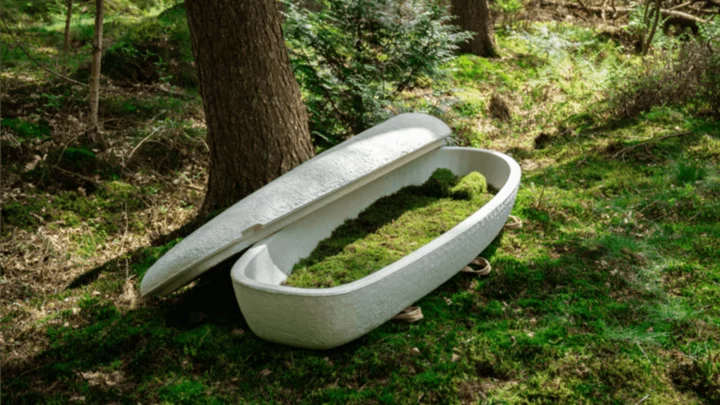The struggle to make eco-friendly choices doesn’t end with death. According to the Green Burial Council, the carbon footprint of a traditional burial is roughly equal to a 300-mile car trip. As awareness around this issue grows, innovators are coming up with creative alternatives, like mushroom coffins that are built to break down.
As the Associated Press reports, a Dutch company called Loop Biotech takes a sustainable approach to the business of death. One of their most popular items is the Loop Living Cocoon. To make it, they combine mycelium (the thread-like root network of mushrooms) with hemp fiber in a sarcophagus-shaped mold. It takes roughly a week for the fungal matter to take the shape of a person’s final resting place.
Though it’s sturdy enough to hold a cadaver, the Living Cocoon isn’t designed with longevity in mind. It starts to decompose once it enters the ground, and in just six weeks the coffin and its contents are reduced to compost. For comparison, conventional wooden caskets can take decades to fully degrade.
A mushroom coffin from Loop Biotech costs 995 euros, which comes out to roughly $1067 USD. Customers interested in cremation can also purchase a biodegradable urn that doubles as a sapling planter for about $212 USD. Loop Biotech ships its products all over Europe, but it’s especially popular in the northern part of the continent. Clients in the U.S.—where green burials are slowly becoming legal—will have to hope mushroom coffins become more widely available in their lifetime.
This article was originally published on www.mentalfloss.com as Mushroom Coffins Are the Latest Green Burial Trend.









